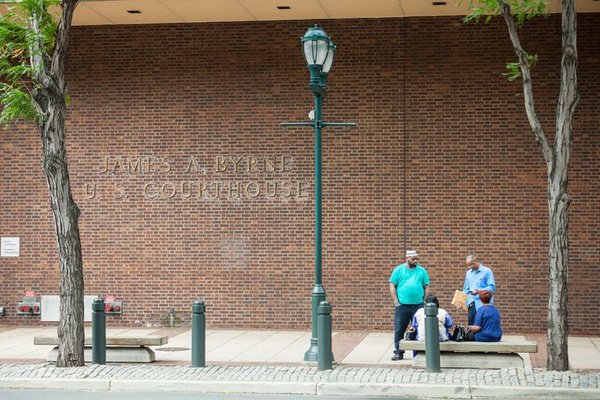Federal prosecutors have charged a Philadelphia woman with fraudulently collecting nearly $100,000 in disability benefits intended for a woman who had been murdered and then buried under the basement of a Frankford rowhome.
The homicide case remains unsolved nearly two years after the remains were found, and investigators believe the victim may have died up to 10 years before her body was discovered deep beneath the property's concrete basement.
MORE: Four charged with stealing dozens of cars in Philly area by hacking and cloning key fobs
In an indictment announced Friday, authorities allege Holly Sadowski, 37, accessed the bank account of the homicide victim and stole her Social Security Administration benefits for years after her death. Sadowski was charged Friday with Social Security fraud, wire fraud and aggravated identity theft. No charges have been filed in the investigation of the homicide.
Court documents only identify the woman who was killed with the initials E.W., and her age was not revealed. The woman was last seen alive in December 2012. She had been receiving disability insurance benefits due to an intellectual disorder, prosecutors said. She was entitled to receive those monthly benefits until her death, but SSA was never informed that E.W. died, prosecutors said. Sadowski allegedly concealed E.W.'s death to collect her benefits for years before investigators became aware of the alleged fraud.
In December 2022, during a court-authorized search of the home in Northeast Philly, police found human remains underneath 6 to 8 feet of concrete in the basement. DNA analysis determined the remains were E.W. The Philadelphia Medical Examiner's Office and a forensic anthropologist concluded E.W. died from blunt trauma to the head and neck. The manner of death was ruled homicide.
Federal prosecutors did not reveal Sadowski's relationship to E.W. and didn't say whether she's suspected to be involved in the homicide.
On Friday afternoon, Philadelphia police confirmed the homicide investigation is "still open and very active," but did not share details about what led authorities to search the Frankford property in 2022. A police spokesperson said the department can't comment on the investigation.
In the years before E.W. died, she was enrolled in Medicare and Medicaid, investigators said. She also received monthly in-person services from a facility in Oxford Circle that provided her medication. E.W.'s last Medicaid claim was in December 2012. She last attended one of her health appointments the same month, but failed to show up for a scheduled appointment in January 2013. She didn't schedule any appointments after that time, authorities said.
From January 2013 until about April 2023, the Social Security Administration deposited $99,447.90 into a Harleysville, Montgomery County, bank account in the name of E.W.
Prosecutors allege Sadowski purposefully concealed E.W.'s death so that her disability benefits would continue to be deposited into the account, enabling Sadowski to use money she wasn't entitled to receive. After E.W.'s death was discovered, authorities reviewed her benefits and tracked how Sadowski allegedly accessed her account over the years. The Social Security Administration continued paying benefits for months after E.W.'s remains were located, according to a statement obtained by investigators. Authorities did not provide details about how the money was spent.
If Sadowski is convicted, prosecutors say she faces a maximum possible sentence of 107 years in prison, three years of supervised release, a $1,750,000 fine and a $700 special assessment.

